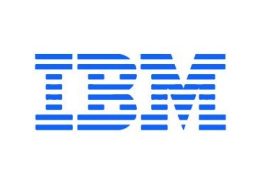Index Summary
- The major market indices were mixed this week. The Dow Jones Industrial Index rose 0.80 percent. The S&P 500 Stock Index gained 0.04 percent, while the Nasdaq Composite finished 0.18 percent lower.
- Barra Growth underperformed Barra Value as Barra Value finished 0.08 percent higher while Barra Growth was unchanged. The Russell 2000 closed the week with a loss of 0.40 percent.
- The Hang Seng Composite finished lower by 2.51 percent, Taiwan gained 1.88 percent, and the Kospi rose 1.98 percent.
- The 10-year Treasury bond yield closed at 3.55 percent, up 7 basis points for the week.
Domestic Equity Market

For the five trading days through Thursday, the figure above shows the performance of each sector in the S&P 500 index. The best-performing sector was telecom services, up 1.7 percent. The other better-performing sectors were consumer discretion and utilities. The worst-performing sectors were energy, materials, and financials.
Within the telecom services sector, the best-performing stock was Sprint Nextel Corp, up 9.8 percent. Other outperforming stocks in the sector were Qwest Communications International Inc, Metropcs Communications Inc, and Verizon Communications Inc.
Strengths
- The aluminum group was the best-performing group for the week, up 12.5 percent, led by its single member, Alcoa Inc. The price of aluminum has risen for each of the last two weeks. A major brokerage firm analyst raised his profit estimate for the company, along with a host of other metal and mining companies, based on expectations that metal, iron ore, and coal prices will increase significantly in 2010.
- The publishing & printing index was the second-best performer, rising 10.2 percent. The CEO of McGraw-Hill Cos Inc., the largest member of the group, said that the firm expects a better year for all of its businesses in 2010, helped by higher school enrollment, increased spending on textbooks, and a recovery in its credit rating business.
- The managed healthcare group was the third-best performer, gaining 8.1 percent. The health insurance companies rose after the “public option” appeared to be excluded from the Senate healthcare legislation.
Weaknesses
- The food retail group underperformed, down 6.6 percent, led by its largest member, Kroger Co. The grocery firm reported third quarter earnings below the consensus estimate, and it lowered guidance for full year 2009 earnings. The firm’s CEO said that financial results are being pressured by factors including persistent deflation, unusually intense competition, and the cautious mindset of customers.
- The healthcare technology group was among the underperformers, losing 6.0 percent. The group’s single member IMS Health Inc. declined after an amendment to the Senate health care bill would effectively ban pharmaceutical data mining, the drug company practice of buying prescription records to target sales presentations to doctors.
- Two banking groups (diversified banks and other diversified financial services) underperformed, down 4.6 percent and 3.1 percent, respectively. This was probably due to investor concern over financial reform legislation being crafted in Congress, as well as dilution and potential dilution due to sale of bank stock in order to repay Troubled Asset Relief Program (TARP) funds.
Opportunities
- There may be an opportunity for gain in M&A (merger & acquisition) transactions in 2009 and 2010.
- The strength in the market since March could be an opportunity to eliminate weaker companies in the portfolio and upgrade to companies with better fundamental outlooks.
Threat
- Should investors’ expectations for an improving economy not come to fruition on a reasonable time frame, it could be a threat to stock prices.











